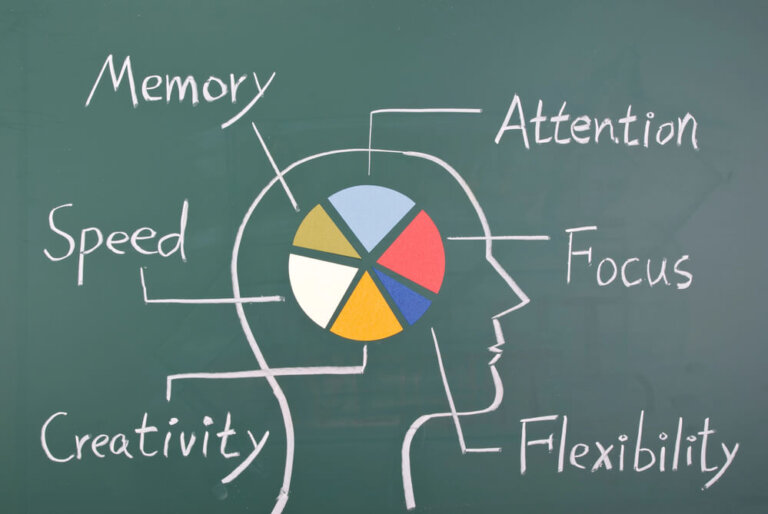As we age, concerns about memory loss and cognitive decline become more prevalent, affecting not just the elderly but also younger individuals who wish to preserve their mental sharpness. According to the CDC, about 5.8 million Americans are living with Alzheimer’s disease, and this number is expected to rise significantly. Whether you’re 25 and looking to maintain your cognitive abilities or 60 and starting to notice changes in your memory, understanding brain health is crucial for preserving quality of life and independence. In this blog, we’ll explore cognitive decline and how the brain functions and introduce innovative therapies that can naturally support and enhance brain health. No matter your age, taking steps now can make a significant difference in your cognitive function in the future.
Basics of Brain Function
Before truly understanding cognitive decline and how to prevent it or even improve symptoms of it, we must first understand how the brain works. Our brain is an incredibly complex organ responsible for every thought, emotion, and action we experience.
Brain Structure and Function:
- The brain is divided into three main parts: the forebrain, midbrain, and hindbrain.
- The cerebrum, located in the forebrain, is responsible for higher cognitive functions like reasoning, emotions, learning, and fine motor skills.
- The cerebellum, in the hindbrain, coordinates movement and balance.
- The brainstem controls basic functions like breathing, heart rate, and sleep.
Neuroplasticity:
Neuroplasticity is the brain’s ability to adapt and change by forming new neural connections. This adaptability is crucial for learning new skills, recovering from brain injuries, and compensating for age-related changes. For instance, if a part of the brain is damaged due to injury, neuroplasticity allows other parts of the brain to take over the lost functions, showcasing the brain’s resilience.
Factors Affecting Brain Health:
Several factors can impact brain health, including genetics, environmental influences, and stress. Genetics can predispose individuals to certain neurological conditions, but lifestyle choices play a significant role in brain health. Environmental factors such as exposure to toxins, poor diet, and lack of physical activity can negatively affect brain function. Stress, in particular, has a profound impact on the brain.
Chronic stress can lead to the release of cortisol, a hormone that, at high levels, can damage brain cells and reduce the size of the hippocampus, an area crucial for memory and learning. By understanding and managing these factors, we can proactively protect and enhance our cognitive function.
Understanding Cognitive Decline
Cognitive decline refers to a gradual deterioration in mental abilities such as memory, reasoning, language, and attention. It is a normal part of aging but can also be a symptom of an underlying condition or a precursor to more severe cognitive impairment like dementia.
Symptoms:
- Forgetting things more often
- Difficulty following conversations or finding words
- Losing train of thought or sense of direction
- Problems with decision-making, planning, or judgment
- Loved ones noticing changes in memory or thinking
Cognitive Declines Impact on Daily Life:
Cognitive decline can significantly impact daily activities, making tasks like managing finances, driving, or even cooking more challenging. It can also affect social interactions and emotional well-being, leading to feelings of frustration and isolation. For example, someone experiencing cognitive decline might find it increasingly difficult to follow recipes they once knew by heart or struggle to remember the names of new acquaintances, impacting their confidence and social engagement.
Common Concerns:
Many people worry about memory loss and the potential for more serious conditions like dementia. These concerns often stem from noticing small lapses in memory or cognitive function, which can be distressing. However, understanding that cognitive decline can often be managed and even improved through proactive measures can alleviate some of these worries. It’s important to recognize that lifestyle changes, mental exercises, and innovative therapies can make a significant difference in maintaining cognitive health.
Understanding and Supporting Brain Health
Maintaining brain health doesn’t have to be overwhelming. Simple, daily habits can significantly improve cognitive function and protect against decline. Whether you’re looking to boost your memory, enhance your problem-solving skills, or keep your mind sharp, integrating these strategies into your routine can make a big difference.
Cognitive Reserve:
Cognitive reserve refers to the brain’s ability to improvise and find alternative ways of completing tasks. Building cognitive reserves can help maintain cognitive function as we age. Engaging in activities like learning new languages, taking up complex hobbies, and pursuing continuous education can all contribute to a stronger cognitive reserve. Studies have shown that individuals with higher cognitive reserve are less likely to exhibit symptoms of cognitive decline, even if they have brain changes associated with dementia.
Mental Exercises and Brain Training:
Mental exercises and brain training activities, such as puzzles, brain games, and learning new skills, can help keep the brain active and engaged. Regular mental stimulation is essential for maintaining cognitive health. For example, daily activities like reading, playing musical instruments, and engaging in strategic games can enhance brain plasticity and improve memory, attention, and problem-solving skills.
Stress Management:
Chronic stress can negatively impact cognitive function and brain health. Techniques for managing stress, such as mindfulness meditation, deep breathing exercises, and physical activity, can help reduce stress levels and support cognitive health. Research indicates that regular practice of mindfulness and stress reduction techniques can lower cortisol levels, improve brain function, and enhance overall mental well-being.
Innovative Therapies for Brain Health
While these foundational strategies are essential for supporting brain health, recent advancements in medical technology have introduced innovative therapies that can further enhance cognitive function.
Theta Chamber Therapy:
Theta Chamber therapy combines sensory isolation with vestibular motion, neurotherapy, and cranial electrical stimulation to promote brain health. This therapy can enhance cognitive function, reduce stress, and improve sleep quality by facilitating deep meditative states and brainwave synchronization. Research suggests that these meditative states can boost creativity, improve emotional balance, and foster neuroplasticity, making the brain more adaptable and robust against cognitive decline. Individuals often report feeling more focused and relaxed after sessions.
Hyperbaric Oxygen Therapy (HBOT):
Hyperbaric Oxygen Therapy involves breathing pure oxygen in a pressurized chamber. This process increases oxygen delivery to the brain, promoting healing and enhancing cognitive function. HBOT has been shown to support recovery from brain injuries, improve symptoms of conditions like dementia and stroke, and enhance overall brain performance. Studies indicate that HBOT can stimulate the growth of new blood vessels and neurons, reduce inflammation, and enhance neuroplasticity, which can help restore cognitive functions and improve overall brain health.
Taking Charge of Your Brain Health
Maintaining brain health is essential for preserving cognitive function and overall well-being as we age. By understanding cognitive decline, the basics of brain function, and exploring both foundational strategies and innovative therapies, we can take proactive steps to support our brain health.
Better brain health starts with incorporating simple daily habits that can make a significant difference. Engaging in mental exercises, building a cognitive reserve, and effectively managing stress are all manageable ways to keep your brain active and resilient. For those looking to go a step further, innovative therapies such as Theta Chamber Therapy and Hyperbaric Oxygen Therapy offer promising avenues to enhance cognitive function and overall brain health.
It’s important to remember that it’s never too early or too late to start focusing on your brain health. Small, consistent changes can lead to significant improvements, helping you maintain mental sharpness and quality of life.
If you’re ready to see how you can tailor these therapies and lifestyle changes to your unique situation, we are ready to help you! Schedule your FREE consultation today.
Disclaimer: The information provided in our blog posts is for educational and informational purposes only and is not intended as medical advice. While we strive to share knowledge and insights on health-related topics, this content should not be used as a substitute for professional medical advice, diagnosis, or treatment. Always consult with a qualified healthcare professional regarding any medical concerns or decisions related to your health and well-being.
References:
Alyssa. (2021, September 20). 6 ways stress affects your brain. Premier Neurology & Wellness Center. https://premierneurologycenter.com/blog/6-ways-stress-affects-your-brain/
Cohut, M., PhD. (2021, March 17). What are the 13 factors that shape brain health? Medical News Today. https://www.medicalnewstoday.com/articles/what-are-the-13-factors-that-shape-brain-health
Harvard Health. (2023, December 7). Protecting against cognitive decline. https://www.health.harvard.edu/mind-and-mood/protecting-against-cognitive-decline
Mild cognitive impairment – Symptoms and causes – Mayo Clinic. (2024, February 13). Mayo Clinic. https://www.mayoclinic.org/diseases-conditions/mild-cognitive-impairment/symptoms-causes/syc-20354578
MSEd, K. C. (2023, September 11). 5 Effects of stress on the brain. Verywell Mind. https://www.verywellmind.com/surprising-ways-that-stress-affects-your-brain-2795040
Professional, C. C. M. (n.d.). Brain. Cleveland Clinic. https://my.clevelandclinic.org/health/body/22638-brain

